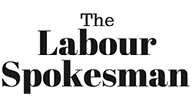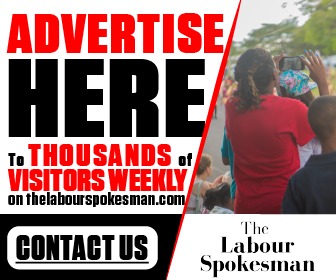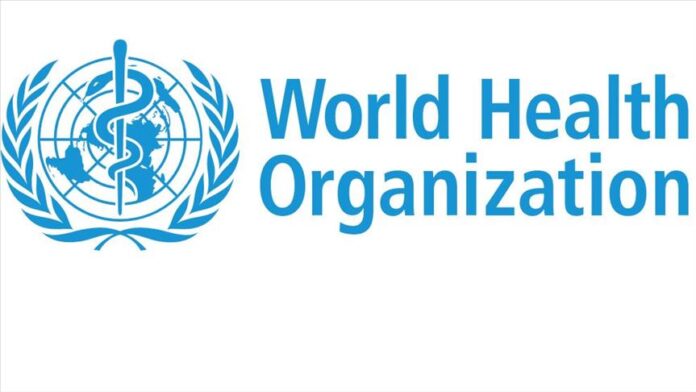BASSETERRE, ST. KITTS (Sunday 25th April 2021)-The global authority on health and leading body on the global response to curb the spread and effected of the COVID-19 pandemic, The World Health Organisation (WHO), has recently issued a set of guidelines for states to consider when seeking to make vaccination mandatory.
The April 13, 2021 guidelines address the need for a balanced approach to achieving maximum immunisation.
The WHO release said, “because policies that mandate an action or behaviour interfere with individual liberty and autonomy, they should seek to balance communal well-being with individual liberties.”
The guidelines document was clear in its statement that it did not support or denounce mandatory COVID-19 vaccination. Rather, it identified “important ethical considerations and caveats that should be explicitly evaluated and discussed through ethical analysis by governments and/or institutional policy-makers who may be considering mandates for COVID-19 vaccination.”
The WHO outlined to its member states six ethical considerations that should the taken when exploring the approach of making the vaccines compulsory. These considerations are (i) vaccine necessity and proportionality; (ii) sufficient evidence of vaccine safety; (iii) sufficient evidence of vaccine efficacy and effectiveness; (iv) sufficient supply of vaccines; (v) public trust in vaccines; and (vi) ethical processes of local decision-making.
In its advice on vaccine necessity and proportionality, the WHO stated, “If such a public health goal (e.g., herd immunity, protecting the most vulnerable, protecting the capacity of the acute health care system) can be achieved with less coercive or intrusive policy interventions (e.g., public education), a mandate would not be ethically justified, as achieving public health goals with less restriction of individual liberty and autonomy yields a more favourable risk-benefit ratio.”
The world body further advised in circumstances where vaccination is deemed mandatory, “Individual liberties should not be challenged for longer than necessary. Policy-makers should therefore frequently re-evaluate the mandate to ensure it remains necessary and proportionate to achieve public health goals. In addition, the necessity of a mandate to achieve public health goals should be evaluated in the context of the possibility that repeated vaccinations may be required as the virus evolves, as this may challenge the possibility of a mandate to realistically achieve intended public health objectives.”
The guidelines call for the availability of data that demonstrate the vaccine being mandated has been found to be safe in the populations for whom the vaccine is to be made mandatory. Health officials are asked to make the data available to the people and not just repeat that anecdotal evidence such as “the benefits of taking the vaccine far outweighs the risks”.
Added to this, policymakers are advised to “consider specifically whether vaccines authorized for emergency or conditional use meet an evidentiary threshold for safety sufficient for a mandate.” As such, mandatory vaccination should be implemented with thought of the extent of the nation health system capacity and readiness to address harm from vaccines that are not fully licensed.
Health policymakers are asked to review the data on efficacy and effectiveness of the vaccines and make them available to show how efficacious the vaccine is in the population. The number of local cases manifesting particular side-effects and complications should be made available to the people for whom vaccination is to be mandated. Added to this, “there should be sufficient evidence that the vaccine is efficacious in preventing serious infection and/or transmission,” guideline 3 went on to say.
The guidelines asked policymakers to consider the sufficiency of the supply of the vaccine for the people it is being mandated for. “In order for a mandate to be considered, supply of the authorised vaccine should be sufficient and reliable, with reasonable, free access for those for whom it is to be made mandatory. The absence of a sufficient supply and reasonable, free access would not only render a mandate ineffective in achieving vaccine uptake, but would create an unduly burdensome, unfair demand on those who are required to be vaccinated but are unable to access the vaccine. Such a mandate would threaten to exacerbate social inequity in access to health care.”
The guidelines went on to caution that “the coercive power that governments or institutions display in a programme that undermines voluntariness could have unintended negative consequences for vulnerable or marginalized populations.”
The advice is that public policy should be measured and balanced as “populations may regard mandatory vaccination as another form of inequity or oppression, making it more difficult for them to access jobs and essential services.”
The WHO concluded its guidelines with consideration for “transparency and stepwise decision-making” as essential elements of ethical analysis and decision-making when it comes to mandatory vaccination. “Reasonable effort should be made to engage affected parties and relevant stakeholders, and particularly those who are vulnerable or marginalised, to elicit and understand their perspectives,” with mechanisms to constantly monitor evidence and to revise such decisions periodically.
The WHO went on to zero in on mandating the vaccine for the general public. This prospect it considered to be rare, but went on to state, “Even if there is a sufficient supply and a mandate for vaccination of the general public is considered necessary and proportionate, policy-makers should still consider whether a mandate for the general public would threaten public trust or exacerbate inequity for the most vulnerable or marginalised.”
St.Kitts and Nevis is a member of the World Health Organisation.
Prime Minister Harris has announced his intentions to seek legal advice to make mandate vaccination in the country.




